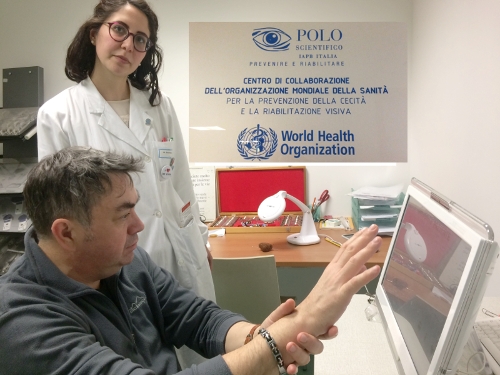
The agreement is valid until May 2020: from visual rehabilitation to prevention, to psychological assistance to the visually impaired
 It is a one of a kind World Health Organization (WHO) Collaborating Centre in the field of blindness prevention and visual rehabilitation. We’re talking about the National Centre, which has just renewed an agreement with the WHO for a further three years (until May 1, 2020).
It is a one of a kind World Health Organization (WHO) Collaborating Centre in the field of blindness prevention and visual rehabilitation. We’re talking about the National Centre, which has just renewed an agreement with the WHO for a further three years (until May 1, 2020).
What is our National Centre
The National Centre of Services and Research for the Prevention of Blindness and Vision Rehabilitation of the Visually Impaired – which is based at the A. Gemelli Polyclinic Hospital in Rome – works with people who are affected by a significant reduction in vision: thanks to vision rehabilitation, they can improve their quality of life. The National Centre can count on a multidisciplinary team, consisting of various professionals, such as ophthalmologists, orthoptists, psychologists, orientation and mobility instructors, etc. (Read more) 
More psychology and rehabilitation for the visually impaired
The visually impaired are generally trained to make the most of their residual vision and receive psychological support too. [[thanks to a holistic approach that considers the person as a whole, following scientifically validated procedures]]. Once rehabilitation has started [[reading exercises, use of paracentral vision in case of maculopathy, etc.]], in some cases patients can continue their training at home on their computer. This is known as home telerehabilitation, which the National Centre has developed thanks to the dedicated work of several specialists.
The new objectives of the WHO Collaborating Centre also include a new version of an international psychological questionnaire. In essence, those who go to an accredited centre for visual impairment and rehabilitation can receive, in the future, a possible diagnosis of depression/anxiety related to a significant reduction in vision. In this case rehabilitative therapies can be “modeled” on the psychological state of the patient.
The National Centre is a state-of-the-art hypovision centre founded and managed by the International Agency for the Prevention of Blindness-IAPB Italy. Opened at the end of 2007, it has been operating since 2008. It became a WHO Collaborating Centre in 2013.
Sources: WHO, IAPB


